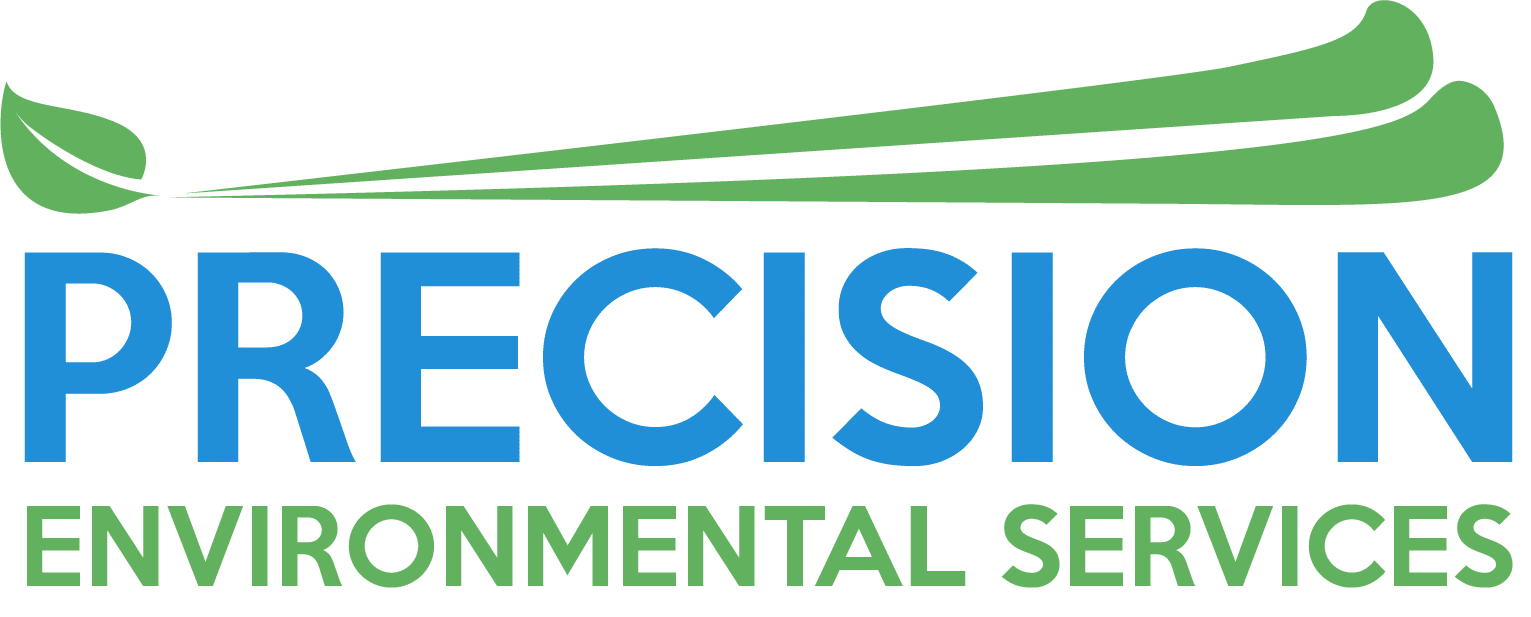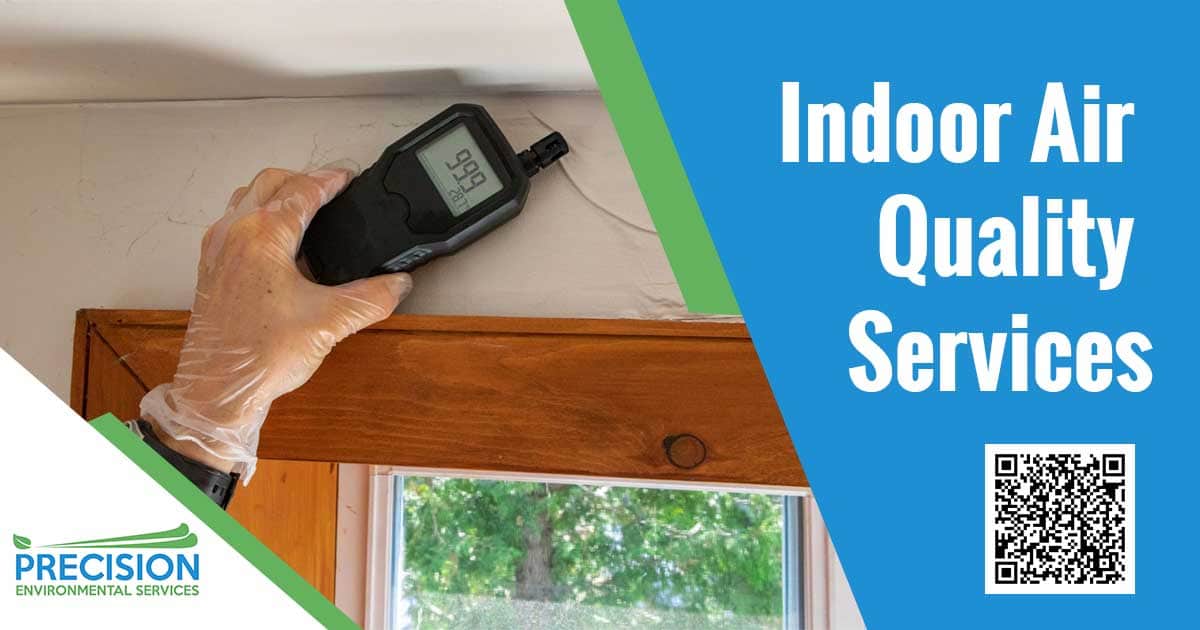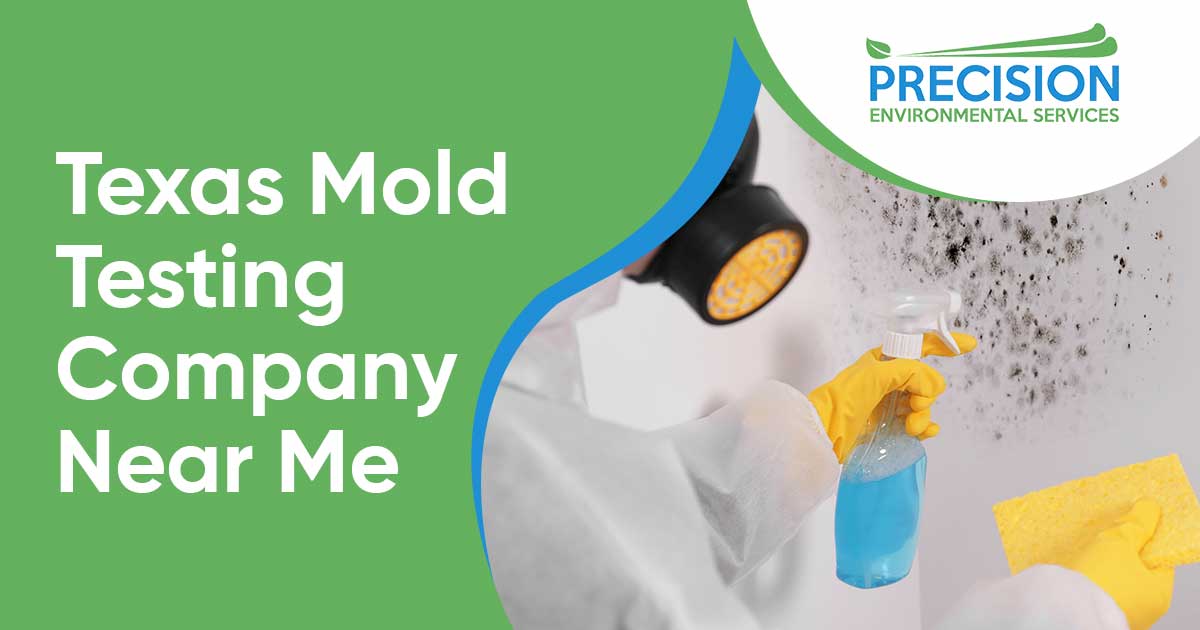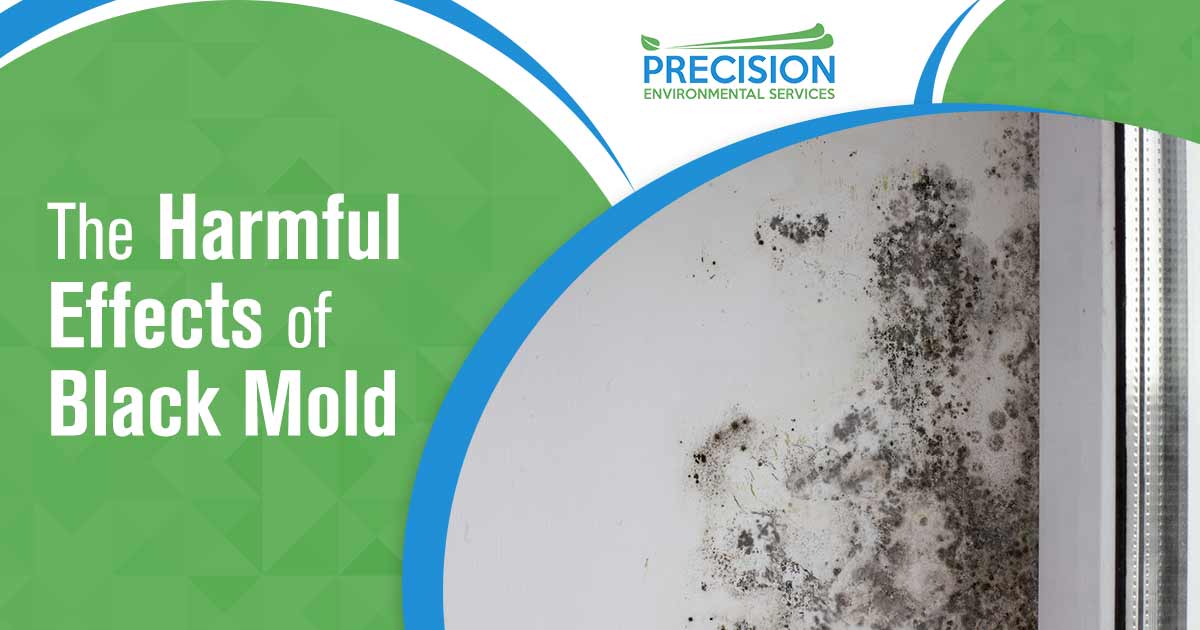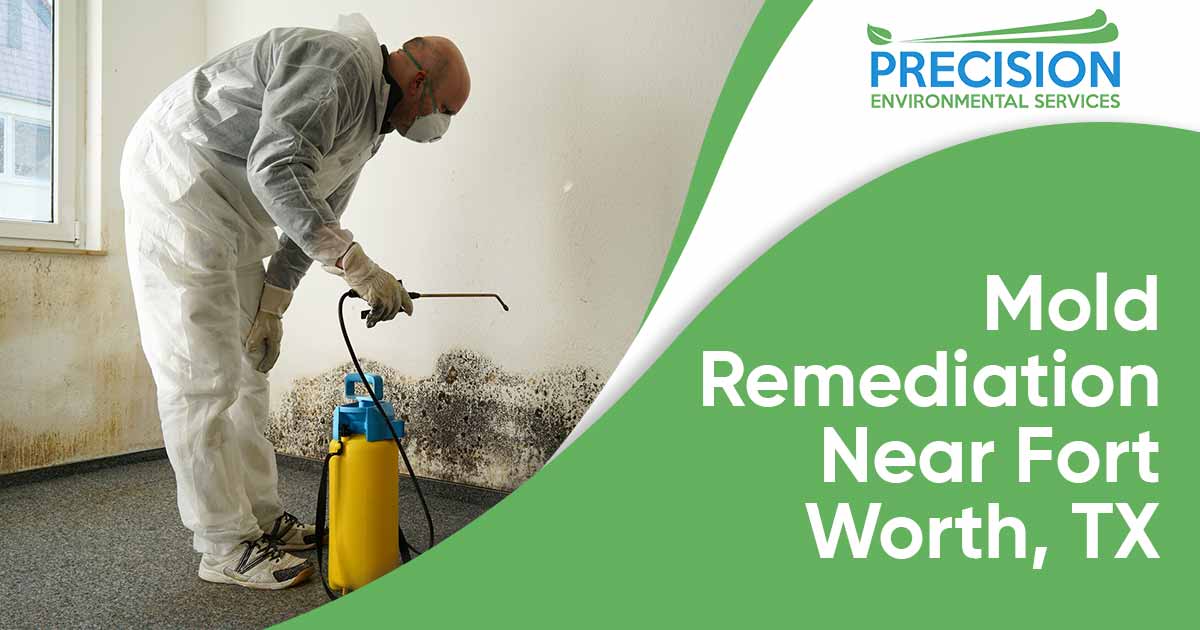Americans tend to spend over 75 percent of their lives indoors. Over the years, energy initiatives have led to buildings being more airtight than ever to save on the cost of heating and cooling systems. While this is generally a good thing and can even protect from outdoor pollution, it has inadvertently resulted in poor indoor air quality for many homes and businesses. In fact, indoor air pollution is often between two and five times worse than outdoor air pollution, according to the Environmental Protection Agency. As you can imagine, this has the potential to greatly affect your health, especially if you suffer from respiratory issues.
Precision Environmental Services takes your health seriously. We offer a variety of indoor air quality services to help improve the quality of the air inside your home or business. But what contributes to poor indoor air quality and what can you do about it?
What Affects My Indoor Air Quality?
There are a number of things that may affect your indoor air quality (IAQ). Some of the air pollutants are more obvious than others. For example, if you notice dust accumulating in certain spots in your home, or if you see particulate matter floating around in a ray of sunlight coming in through the window, then that’s all impacting your air quality.
Biological pollutants such as pollen, dirt, dust, animal dander, bacteria, and even mold and mycotoxins all contribute to poor IAQ. In addition, if you have a smoker in your home, then the second-hand smoke is also a pollutant. If you heat your home using a fireplace, wood stove, or a heater that uses oil, gas, or coal then this can decrease your air quality.
Most people don’t realize it, but even furniture and the building materials used to build your home or office can contribute to bad air quality. Formaldehyde, a chemical commonly found in plywood, carpet, and even upholstery can reach dangerous levels.
Many household cleaners, craft materials, adhesives, paints, varnishes, and pesticides, all known as Volatile Organic Compounds or VOCs contribute to indoor air pollution.
How Can I Improve My Indoor Air Quality?
There are a few ways you can improve indoor air quality. The first way is to eliminate the source of indoor air pollutants. The second is to improve ventilation, and the third is to keep your home and HVAC system clean.
Eliminate the Pollutants
One of the absolute best ways to eliminate the source of pollutants is to follow all recommendations when it comes to HVAC maintenance and other regular home maintenance. Maintaining the appliances in your home can cut back on some of the contributing factors of poor air quality. Make sure you’re regularly doing A/C and heater maintenance, as well as maintenance on your furnace, gas cooking range, and any other gas or heating sources. This will help control the carbon monoxide emissions in your living space.
Likewise, making sure you’re staying on top of changing or cleaning the air filters on your HVAC unit will prevent particulates from building up and recirculating through your home or office. You can also switch to an air filter with a better rating to capture smaller particles if it complies with the model of your HVAC equipment. Regular HVAC service will also help with duct cleaning, duct sealing, and other air duct system problems.
If indoor air quality testing indicates you have a mold problem, then you’ll want to get it taken care of right away. Mold testing and certified mold remediation specialists can help locate the source of your mold problem, correct what is causing the moisture mold needs to thrive, and properly remove the mold from your home.
Improving Ventilation
Installing and maintaining proper ventilation systems throughout your home can help reduce home air pollution and prevent mold. Exhaust fans in bathrooms and kitchens can help cut down on humidity and moisture that can encourage mold and mildew growth. If ventilation isn’t possible then consider a dehumidifier to help control moisture. As mentioned earlier, installing or improving air filtration systems or ductwork can help you and your family breathe easy.
Regular Home & HVAC System Cleaning
Many people don’t realize it, but the filter in your heating system and AC systems isn’t enough to keep your air clean if your home isn’t clean. Yes, they circulate the air through a filter, but the filter doesn’t usually catch everything. This leaves your home air riddled with musty odors, particulates, and poor air quality in general. Help your fair cleaning system by staying on top of managing what you can in your home or hiring cleaning services.
Understanding Your Indoor Air Quality Problem
If you think you might have an indoor air quality problem, or if you want to protect yourself or a family member who has asthma or other respiratory issues from pollutants, bacteria, and viruses then you may want to think about speaking to an air quality specialist.
Good air quality goes beyond comfort. It’s about your health and the effect of poor indoor air on you, your family, or your employees. You can hire an air quality expert to perform indoor air quality testing services in your home or business. The indoor air quality test will give you an idea of what is contributing to your poor IAQ. Air testing can also identify which types of mold is present and in what concentration. Mold testing can also let you know if the mold inside your home is toxic. From there, you’ll know what to do in order to improve IAQ in your home.
